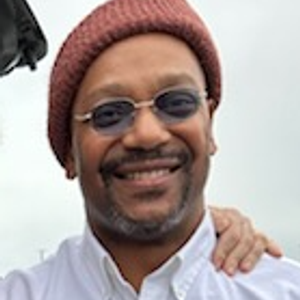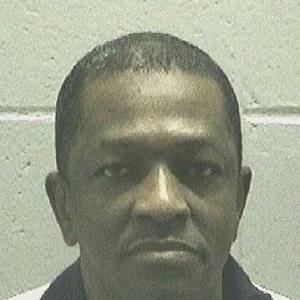
In an op-ed for the Washington Post, Kenneth Rose, an attorney for the recently freed Henry McCollum, expressed his frustrations with the death-penalty system that allowed such mistakes to happen in the first place: “I am angry that we live in a world where two disabled boys can have their lives stolen from them, where cops can lie and intimidate with impunity, where innocent people can be condemned to die and where injustice is so difficult to bring to light. As I lie awake at night, mulling over the maddening details of this case, I wonder: How many more Henry McCollums are still imprisoned, waiting for help that will never come?” He described the hardships McCollum experienced on death row, including seeing other inmates being executed. “He became so distraught during executions that he had to be put in isolation so he wouldn’t hurt himself,” Rose said. McCollum only saw his family on rare occasions when they could make the long drive from New Jersey to North Carolina, and both his mother and grandmother died while he was imprisoned. Read the op-ed below.
Rose went on to explain the immense hurdles to proving McCollum’s innocence, saying, “I couldn’t help Henry in a system where the deck was stacked against him. He had signed a detailed confession before a change in laws to require confessions to be videotaped. I had no way to prove that the details in the confession police wrote for Henry — down to the brand of cigarettes smoked by the perpetrator — were all provided by law enforcement.” Eventually, it was an outside investigation that helped set McCollum free: “It took the Innocence Inquiry Commission, working for four years and spending hundreds of thousands of dollars, to finally prove my client’s innocence. Sadly, only a handful of defendants ever get that kind of attention and resources. In many other cases, biological evidence is lost, contaminated or never existed to begin with.”
Op-ed:
I just freed an innocent man from death row. And I’m still furious.
Watching an innocent client walk out of prison is every defense lawyer’s dream, especially for those of us who represent people condemned to die. This week, I got to watch my client, Henry McCollum, North Carolina’s longest serving death row inmate, regain his freedom after 30 years behind bars. New DNA evidence turned up by the N.C. Innocence Inquiry Commission proved that another man, a serial rapist and murderer, was the perpetrator in the crime for which Henry and his brother, Leon Brown, were sentenced to death in Robeson County in 1984.
Finally proving Henry and Leon’s innocence was a great victory, but what I cannot forget is that this case is, above all, a tragedy. Two innocent men — both intellectually disabled — spent three decades of their lives being, essentially, tortured by the state of North Carolina.
For Henry, it began when officers held him in an interrogation room for five hours and promised him he could go home if he signed a confession. He was naive enough to believe them. Then the 19-year-old spent three decades watching other inmates be hauled off to the execution chamber. He became so distraught during executions that he had to be put in isolation so he wouldn’t hurt himself.
During those years in prison, he was a man convicted of raping and murdering an 11-year-old living among a population that is notoriously unfriendly to child sex offenders. He wasn’t able to hug his family, or even hold their hands. He saw them only on the infrequent occasions when they were able to travel from New Jersey to Raleigh, an eight-hour trip. His mother and the grandmother who helped raise him died while he was in prison.
Both Henry and Leon got new trials in 1991. Leon’s murder charge was dropped, but he was convicted of rape and sentenced to life in prison. Leon was also exonerated and freed from prison this week.
Even 30 years of appeals aren’t always enough to dig up the truth.
I have been Henry’s attorney for 20 of those years, and he and his family pleaded with me to prove his innocence. But I couldn’t help Henry in a system where the deck was stacked against him. He had signed a detailed confession before a change in laws to require confessions to be videotaped. I had no way to prove that the details in the confession police wrote for Henry — down to the brand of cigarettes smoked by the perpetrator — were all provided by law enforcement.
I was told that the police file on Henry’s case had been lost, so I could not tell how much evidence police had to ignore to pin this crime on two disabled boys with no history of violence. Until the Innocence Inquiry Commission unearthed that missing file, I didn’t know that Roscoe Artis, the man whom DNA showed to be the true perpetrator, was a convicted rapist who lived one block from the crime scene, or that, at the time of Henry and Leon’s arrest, Artis was wanted for another, almost identical rape and murder.
I also didn’t know until I saw the file that, three days before Henry’s trial began, law enforcement asked the State Bureau of Investigation to test a fingerprint found at the crime scene for a match with Artis. This was an important request, considering that no physical evidence linked Henry or Leon to the crime. Unbelievably, the test was never completed, and the district attorney tried Henry and Leon for their lives. Artis’s name was never mentioned at the trial.
It took the Innocence Inquiry Commission, working for four years and spending hundreds of thousands of dollars, to finally prove my client’s innocence. Sadly, only a handful of defendants ever get that kind of attention and resources. In many other cases, biological evidence is lost, contaminated or never existed to begin with.
Now, with Henry finally free, some people expect me to feel satisfied, or even happy. The truth is: I am angry.
I am angry that we live in a world where two disabled boys can have their lives stolen from them, where cops can lie and intimidate with impunity, where innocent people can be condemned to die and where injustice is so difficult to bring to light.
As I lie awake at night, mulling over the maddening details of this case, I wonder: How many more Henry McCollums are still imprisoned, waiting for help that will never come?
Kenneth J. Rose is senior staff attorney at the Center for Death Penalty Litigation, a nonprofit that represents inmates on North Carolina’s death row. He also trains capital litigators across the state.
(K. Rose, “I just freed an innocent man from death row. And I’m still furious.,” Op-ed, Washington Post, September 4, 2014). See Innocence and Representation.
Innocence
Mar 01, 2024




